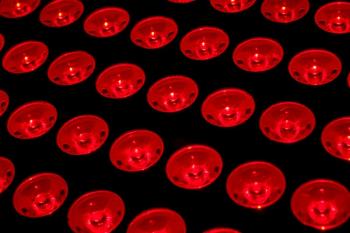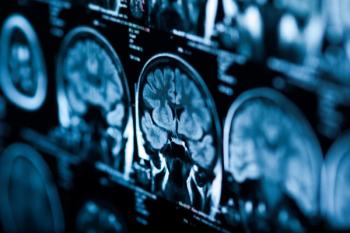
Espansione Group announces new AI-powered algorithm for meibomian gland segmentation
MeiboMetrics is scheduled to be available on several platforms starting in 2025.
A new algorithm powered with artificial intelligence (AI) for the segmentation and quantitative measurement of meibomian glands has been announced by Espansione Group.1 MeiboMetrics has been developed in partnership with the Institute of Biomedical and Neural Engineering at Reykjavik University, which was initiated in early 2023, according to a news release.
“The software is based on a novel approach that uses sophisticate bio-imaging techniques to measure and assess meibomian glands,” said Paolo Gargiulo, full professor, founder, and director at Reykjavick University’s Institute for Biomedical and Neural Engineering, in the release. “This new solution provides a quantitative evaluation of dry eye condition advancing the state-of-the-art technology in the field.”
The new algorithm is able to provide eye care providers with detailed data on length, width, and area of each meibomian gland, which also makes granular measurements possible. Additionally, MeiboMetrics utilizes AI to identify and segment meibomian glands, which then matches them against a large training dataset. This utilization of AI allows for better accuracy and provides repeatability while reducing the need for manual intervention, according to the release. Manual contouring is also not necessary, which reduces human error, maximizes repeatability of results, and streamlines clinical workflows.1
Currently, Espansione Group has developed a variety of different ophthalmic treatment and screening devices. Among those devices include eye-light for the treatment of dry age-related macular degeneration and extended anterior segment pathologies, meibomask for the management of anterior segment conditions including dry eye disease and meibomian gland dysfunction, and my-mask for the management of anterior segment conditions through photobiomodulation. The company’s devices utilize either Light Modulation Low=level Light Therapy (LM LLLT) or Optomal Power Energy. LM LLLT is a photobiomodulation technology which is utilized for the treatment of anterior and posterior segment conditions, while Optimal Power Energy is Espansione’s patented evolution of intense pulsed light technology.2
MeiboMetrics will be available on the me-check Pro and other platforms starting in 2025.1
References:
Espansione Group announces MeibioMetrics: An innovative, AI-powered algorithm for meibomian gland segmentation and quantitative measurement. News release. Espansione Group. September 17, 2024. Accessed October 11, 2024. https://www.espansionegroup.it/newsroom/espansione-group-announces-meibometrics-an-innovative-ai-powered-algorithm-for-meibomian-gland-segmentation-quantitative-mea/
A new paradigm in ophthalmology and beyond. Espansione Group. Accessed October 11, 2024.
https://www.espansionegroup.it/
Newsletter
Want more insights like this? Subscribe to Optometry Times and get clinical pearls and practice tips delivered straight to your inbox.




























